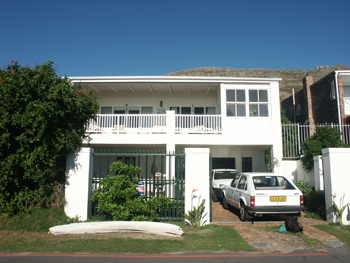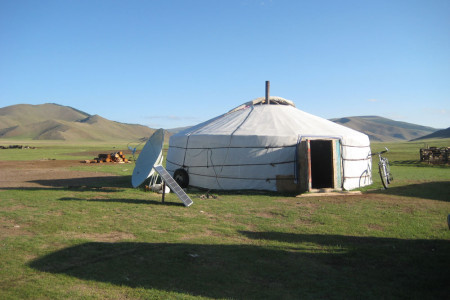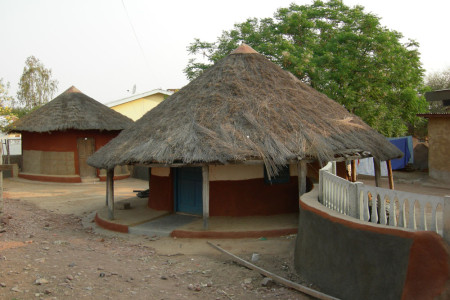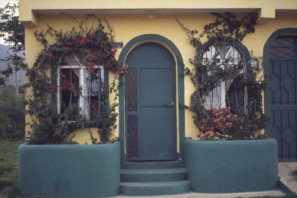Context
Mine is a Reception class in a smaller-than-average urban Primary school. I chose to focus on the theme of housing, and whether it was fair that people across the world live in such varied conditions. I chose this topic as I thought it would be something young children could relate to, as everybody lives somewhere! I could not have predicted the sensitivity and thoughtfulness pupils demonstrated, and how they were even able to apply the outcomes of our discussions to their local environment.
The purpose of using this audit activity was to start a lesson in which children would consider whether the different conditions people lived in were fair or unfair.
I showed pupils a PowerPoint presentation of a variety of different houses. There was space around each picture for me to add any comments they made. I planned questions to prompt pupils to consider what it would be like to live in each place and not just describe what it looked like. Initially they found it easy to describe the houses that were familiar to them, and were able to make positive and negative comments about them. It was pleasing to hear that all pupils were positive about their own homes and able to give several reasons why:
I like my house because it is big enough for me and my mum and my dad and my brother.
My house has a bath in it.
I sleep in a room with my sister we have two beds and all our toys in our room.
The pupils surprised me in showing a mature understanding of differences in the housing and lifestyles of people in their own community, as well as responding sensitively to pictures of different housing situations across the world. Pupils were able to discuss both the differences, and possible reasons for these, in their own town:
You know the big house on the river, that man has a helicopter but I don’t because my Mummy just has a car.
You don’t need a helicopter so he should give the money to somebody who doesn’t have anything like (the families living in slums) in the picture. Then that will be fair that everybody has something.
At first pupils gave some stereotypical answers, for example they thought the mansion had no defects because it was big and posh-looking, and they struggled to find any positives for the mud hut:
This house is good because if you want to have a party there is lots of room for your friends.
The lesson then continued into a detailed discussion, prompted with an idea from me. Looking at the picture of the mud hut, I pointed out that it has lots of space around it so there is lots of space to play, and this triggered them to suggest many more possible positive attributes.
The discussion moved on to considering if it was fair that people lived in different places. Overall, pupils suggested that for things to be fair, everybody needed equal access to everything. They thought it was ok for a person to own more than somebody else but that they should share it with others who had less than them.
This discussion provided pupils with the opportunity to consider their own lifestyles and compare them with those of others. I had mainly planned for them to consider the living conditions of others but they made the activity very personal to themselves and their friends and family. This was a positive deviation from my original planning as I think it made the learning more meaningful to the children.
In future, when I am planning similar lessons, I will purposely consider how the activity or learning focus can encourage the children to consider their own lives in relation to the topic being discussed. This will hopefully increase the children’s understanding of global issues, as it will relate it back to something they can identify with.
Justifying teaching Global Citizenship in the Foundation Stage Curriculum (FSC) is easy as many of the skills required overlap. The ethos of the FSC is to help children develop new skills alongside a love of learning so that they can become well-rounded members of society as they move through school and into adulthood. Early years teachers are supposed to teach from the children’s interests and choose topics that offer children new learning and understanding opportunities. All of these themes are also fundamental to teaching global citizenship. Some clear links can be seen between Global Citizenship and the PSHE (Personal, Social and Health Education) curriculum which requires children to understand expectations of behaviour and that all behaviours have consequences. Another clear connection with global citizenship is the Understanding the world area of the curriculum, which expects children to know about other people in the world and how they are different to them. I think there is a benefit to teaching these topics regardless of the curriculum expectations as they promote skills and values everyone should aspire to have.
The main thing I have learnt through this process, and will apply to future teaching, is to have high expectations of pupils. Through this activity they have shown me that, despite their young age, they are able to consider global issues in a very mature way and are able to understand and provide insightful feedback about issues I initially though would be too complicated for them. I now think that, provided the topic is delivered in a practical and age-appropriate way, pupils can cope with some complex issues.





